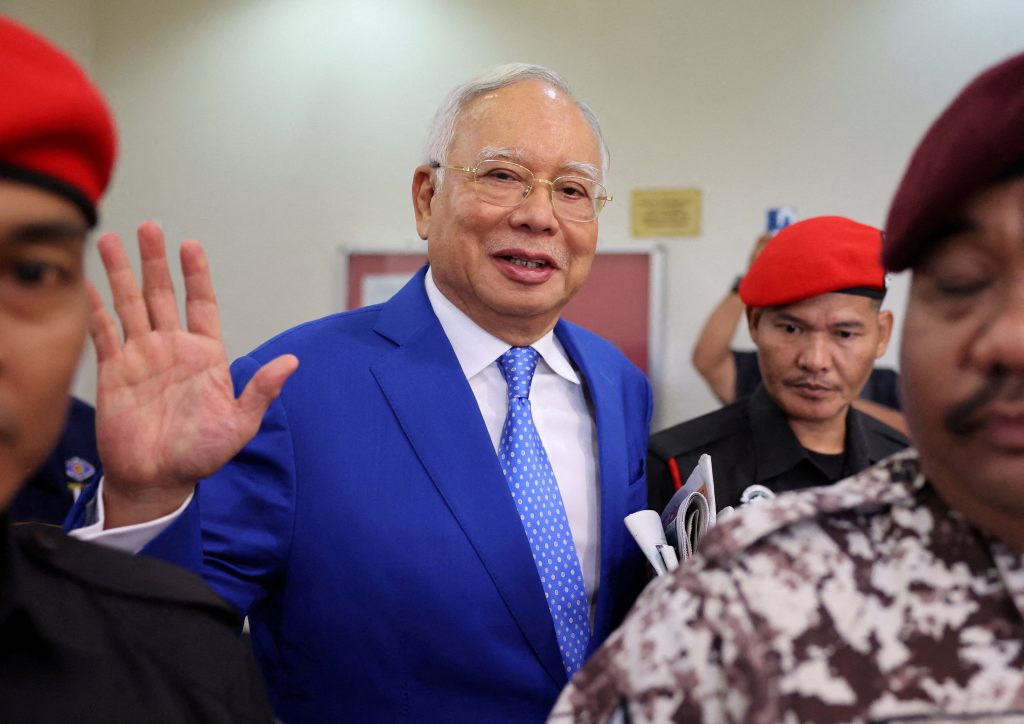Former Malaysian Prime Minister Najib Razak was sentenced to 12 years imprisonment for his involvement in the multi-billion 1MDB corruption scandal. Yet barely two years into his incarceration, the Parole Board announced that Najib’s sentence would be halved accompanied by a much reduced fine. Should Najib be granted parole for good behaviour, he could be released upon serving two-thirds of the jail term – and be released in 2026.
The announcement sent a shockwave in Malaysian society, not least because Prime Minister Anwar Ibrahim was widely perceived as a reformist against corruption. Anwar first stepped into international limelight during the turbulent 1997 Asian Financial Crisis, when he spearheaded the Reformasi movement which advocated for democracy and social justice. As the deputy prime minister of the ruling Barisan Nasional (BN) coalition government, Anwar was seen as a reformist leader that countered then prime minister Mahathir Mohamad’s authoritarian streak.
As the 1997 economic crisis unravelled, the promise of developmentalist authoritarianism in exchange for rapid economic growth sounded increasingly hollow, with rent-seeking political elite seen as a scourge and source of misery.
Anwar boldly criticised Malaysia’s ethnicity-based affirmative action policy, the Malaysian New Economic Policy, for disproportionally benefitting Bumiputra (Malay) elites by milking state resources, calling instead for a needs-based system. The schism proved untenable as Anwar was sacked in 1998 on grounds of alleged sodomy and corruption and was imprisoned for much of the next two decades. Hope for reform continued nonetheless, as Anwar championed equal rights for all Malaysians with ‘ethics’ in economics. He led the opposition Pakatan Rakyat coalition — later Pakatan Harapan (PH) — from behind bars.
In a strange twist of fate, Anwar was sworn in as prime minister in late 2022 after an inconclusive general election which produced an unprecedented hung parliament. Malaysians had high hopes that Anwar would be a saviour, revamping Malaysia’s legal and economic institutions to revive economic growth. Unfortunately, recent events suggest that reforms on both fronts are severely lacking, with almost no noticeable improvements.
The reluctance to undertake crucial reforms could be partially explained by the need to get BN onboard, with inevitable concessions in the process. Najib had served as BN chairman until the 2018 General Election and remains widely influential within his party. PH and BN struggled to obtain Malay support in the 2022 general election and the 2023 state elections despite contesting under a single ticket, indicating the inability of Anwar’s administration to galvanise votes among Malaysia’s largest ethnic group. The opposition Perikatan Nasional coalition ran a campaign razor-focused on Malay sentiments.
PH’s dismal electoral performance has compelled Anwar to focus on short-term political survival. This has dashed voters’ hopes for structural reforms under Anwar, as they generally require a long gestation period and costly trade-offs before the outcomes are apparent.
One of PH’s election promises was to separate the role of public prosecutor from the attorney-general’s chambers. Without an independent public prosecutor, the attorney-general — appointed by the incumbent government — is susceptible to influence. Not only has the Anwar administration failed to table a bill in parliament to pursue this matter, the Malaysian High Court decision to grant Deputy Prime Minister Zahid Hamidi a discharge not amounting to an acquittal in September 2023 has led to widespread criticism of political interference.
Zahid played an instrumental role in the government’s formation after the 2022 general election because, as United Malays National Organisation president, he supported Anwar to become prime minister. In an almost bizarre moment of deja vu, Anwar is perceived as falling back on the old playbook of judicial meddling which led to his imprisonment in 1999.
Democratic norms have not improved under Anwar’s leadership. In 2020, rampant defections among members of parliament led to the Sheraton Move — an euphemism for ‘party coup’ — which ousted the ruling PH coalition. Prior to assuming the prime ministership, Anwar strongly criticised the absence of an anti-party hopping law as a crucial deficit in Malaysia’s democracy. Though an anti-party hopping bill passed in 2022 with bipartisan support, Anwar has hypocritically exploited its legal loopholes, with several opposition politicians switching sides to support Anwar’s administration, ostensibly to secure constituency development funds.
Non-Muslims continue to see their rights being encroached upon by a state that favours Islam, with Anwar being the first Malaysian Prime Minister to preside over an Islamic religious conversion ceremony. Anwar’s public participation in Islamic ceremonies may indicate his pandering to the majority Malay population by appealing to conservative religious and ethnic sentiments.
On the economic front, the government has rejected repeated calls to reintroduce the goods and services tax which was scrapped soon after PH first came into power in 2018. Without a broad base consumption tax, the government is running a large fiscal deficit with a narrow stream of tax revenue. As Malaysia has one of the most extensive price subsidy programs in East Asia, the absence of consumption tax coupled with high fiscal deficit is severely limiting the budget for developmental expenditure, which is necessary for sustained economic growth.
With the next general election set for 2027 and the opposition gaining momentum, Anwar does not have much time left to live up to his Reformasi credentials.
Kevin Zhang is Associate Senior Research Officer with the Malaysia Studies Programme and Regional Economic Studies Programme at the ISEAS–Yusof Ishak Institute, Singapore.
This article is part of an EAF special feature series on 2023 in review and the year ahead.

